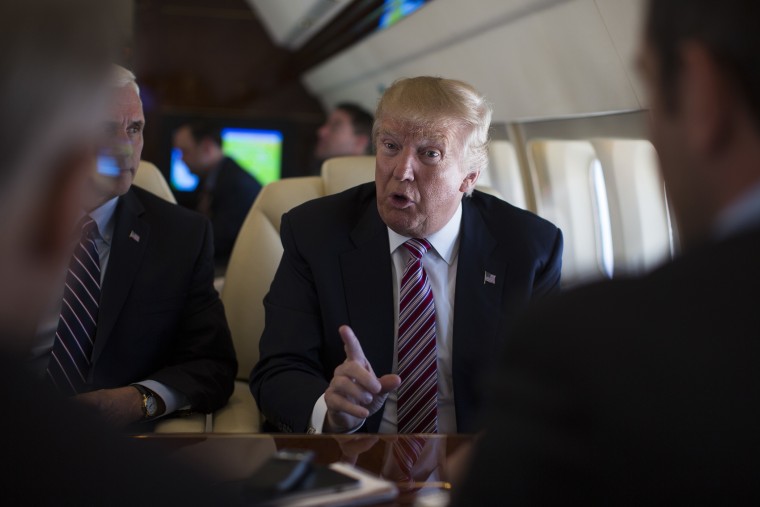One of the unexpected developments of the transition period has been Donald Trump's disinterest in daily intelligence briefings. President Obama, immediately after the election, ordered the relevant agencies to make available to the president-elect the same information that's delivered to the Oval Office, but in a bit of a surprise, Trump largely blew off the information.Last month, Fox News' Chris Wallace noted reports that the Republican was only receiving one briefing a week, instead of seven. Trump didn't deny the accounts, but
said it didn't matter because he's "like, a smart person." He added, "I get it when I need it."A month later, with his inauguration drawing closer, Trump sat down
with Axios yesterday, and referring to the intelligence he's seen, the president-elect said, "I've had a lot of briefings that are very … I don't want to say 'scary,' because I'll solve the problems." The exceedingly confident Republican added this in reference to the PDB:
Trump said he likes his briefings short, ideally one-page if it's in writing. "I like bullets or I like as little as possible. I don't need, you know, 200-page reports on something that can be handled on a page. That I can tell you."
Hmm. President Obama likes to read daily intelligence briefings and pose follow-up questions in writing. Bill Clinton had a similar approach. George W. Bush, during his two terms,
changed the briefing process, preferring oral reports from intelligence professionals.Trump, apparently, has in mind something akin to Powerpoint slides.The point here is not to chuckle at the obviously unprepared amateur, who, in 47 hours, will be the Leader of the Free World. There's a substantive angle to this that's worth appreciating.The Presidential Daily Briefing is the intelligence community's mechanism for bringing key information about national security to the Oval Office. When the person behind the desk effectively says, "Just give me some bullet points," it creates a dynamic in which the president becomes even more reliant on people like his National Security Advisor -- in this case, the
highly controversial Michael Flynn -- for relevant information about potential threats.Trump is inclined to look past niceties such as details and nuance, relying instead on his inner circle to fill in the gaps. No good can come of this.In case that weren't quite enough, the
New York Times reports today:
The Obama administration has written 275 briefing papers for the incoming Trump administration: nearly 1,000 pages of classified material on North Korea's nuclear program, the military campaign against the Islamic State, tensions in the South China Sea, and every other kind of threat the new team could face in its first weeks in office.Nobody in the current administration knows whether anyone in the next has read any of it.Less than three days before President Obama turns the keys to the White House, and the nuclear codes, over to President-elect Donald J. Trump, Mr. Trump's transition staff has barely engaged with the National Security Council below the most senior levels.... [T]he chronic upheaval in Mr. Trump's transition, a delay in appointing senior National Security Council staff members, and a dearth of people with security clearances have deprived the Trump team of weeks of prep work on some of the most complex national security issues facing the country.
There's no reason to believe Trump and his team are fully prepared for the scale of the challenges they'll soon have to tackle.
